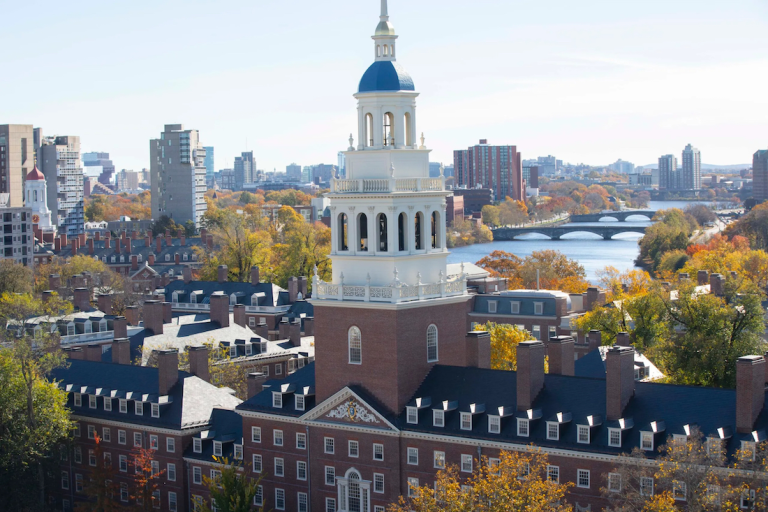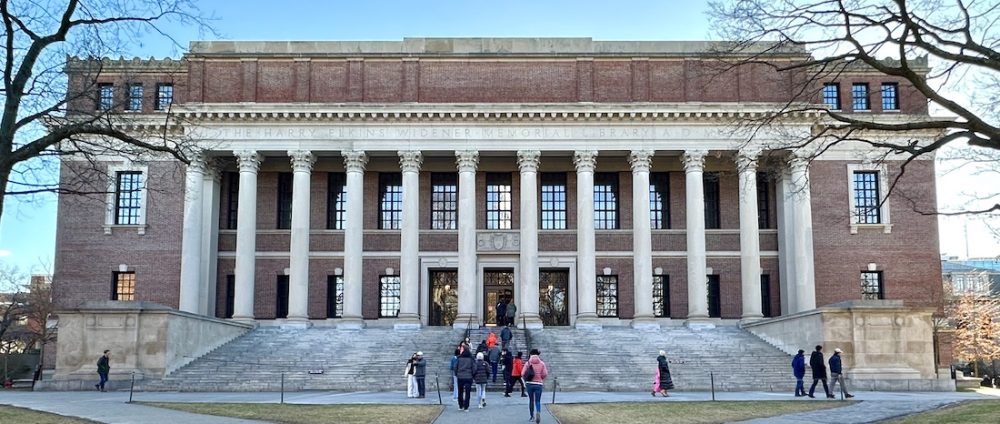
Boston, MA — In a dramatic escalation of tensions between the Trump administration and higher education institutions, the federal government has frozen $2.2 billion in multi-year grants and contracts allocated to Harvard University.
The unprecedented move comes after the Ivy League school rejected demands from the White House to overhaul its diversity programs and implement stricter policies on campus protests.
The funding freeze was announced late Monday night, hours after Harvard President Alan Garber publicly condemned the administration’s demands as an attack on academic freedom and a violation of constitutional rights.
“The University will not surrender its independence or relinquish
its constitutional rights” — Harvard President Alan Garber
Demands Spark Controversy
The Trump administration had issued a series of directives to Harvard and other elite universities in recent months, citing concerns over rising antisemitism during pro-Palestinian demonstrations linked to the Gaza conflict. Among the demands were calls to abolish diversity, equity, and inclusion (DEI) initiatives; ban masks at campus protests; implement merit-based hiring and admissions practices; and increase oversight of foreign students.
Officials argued that these measures were necessary to ensure compliance with civil rights laws and protect Jewish students from harassment on campuses nationwide. However, critics accused the administration of using antisemitism as a pretext for advancing a conservative agenda aimed at dismantling progressive policies in academia.
Harvard’s Defiance

Harvard’s refusal to comply with these demands marks a significant act of defiance against the administration’s broader crackdown on perceived liberal bias in higher education. “No government has the authority to dictate what universities can teach or whom they can admit,” Garber asserted.
Shortly after Harvard’s rejection became public, the administration announced it would halt all federal funding earmarked for the university—a decision that could have devastating consequences for research programs and student aid initiatives dependent on government support.
The funding freeze also affects high-profile projects at Harvard’s T.H. Chan School of Public Health, where nearly half of its budget relies on federal grants for groundbreaking research into diseases like cancer and Alzheimer’s. Dean Andrea Baccarelli described the freeze as “a direct assault on scientific progress” that jeopardizes critical health advancements benefiting millions worldwide.
Broader Implications

The standoff between Harvard and the Trump administration is part of a larger battle over free speech and academic independence in American universities. Other institutions are also under scrutiny; Columbia University recently faced a $400 million funding cut for failing to address alleged “antisemitism” during campus protests.
In addition to freezing funds, the administration has begun revoking visas for hundreds of international students and researchers across more than 80 universities—actions that critics say are politically motivated and disproportionately target individuals with minor infractions or perceived ideological affiliations.
Former Treasury Secretary Larry Summers, who previously served as Harvard’s president, called the funding freeze “punitive” and “unlawful.” He warned that such actions undermine democratic principles by allowing political agendas to dictate educational policies.
Legal Challenges Ahead
Experts predict that the legality of the funding freeze will be challenged in court. A key issue is whether the administration’s actions violate constitutional protections for academic freedom and free speech or exceed its authority under federal law.
“This is an unprecedented situation,” said one legal scholar specializing in presidential powers. “While universities undoubtedly need reform in some areas, using federal funds as leverage to impose political demands crosses a dangerous line.”
Political Fallout
The clash between Harvard and the Trump administration has reignited debates about the role of government in regulating higher education institutions. Supporters of the funding freeze argue that taxpayer dollars should not support universities perceived as hostile to conservative values or unwilling to address antisemitism effectively.
However, opponents view it as an alarming example of government overreach designed to stifle dissent and erode academic independence. “This is not about combating antisemitism,” said one critic from a national civil liberties organization. “It’s about punishing institutions that refuse to conform to a narrow political ideology.”
As legal battles loom and public opinion remains divided, one thing is clear: this high-stakes confrontation will have far-reaching consequences for both higher education policy and broader debates about free speech in America.
This story highlights escalating tensions between academia and government while emphasizing themes of autonomy, constitutional rights, and political retaliation within a shocked yet analytical tone fitting public discourse today.
(April 15, 2025)
#HarvardVsTrump, #FundingFreeze, #CampusProtests,
#AcademicFreedom, #DEIUnderFire, #TrumpAdministration,
#FreeSpeechCrisis, #HigherEdCrisis, #FederalFundingCut
Tags: Harvard University, Donald Trump, antisemitism, campus protests,
diversity equity inclusion (DEI), academic freedom, federal funding freeze,
U.S.-Mexico border policies, free speech, higher education crisis
